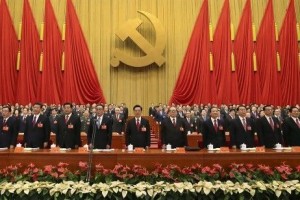My idle thoughts on tech startups
Alibaba S-1: How Alibaba Is Governed Like China’s Politburo
 One of the first things that caught my eye when I started reading the Alibaba Group S-1 was a section on page 7 of the filing regarding something called the “Alibaba Partnership”. It quickly struck me that the Alibaba Group’s corporate governance in some ways mirrors China’s Politburo.
One of the first things that caught my eye when I started reading the Alibaba Group S-1 was a section on page 7 of the filing regarding something called the “Alibaba Partnership”. It quickly struck me that the Alibaba Group’s corporate governance in some ways mirrors China’s Politburo.
Some context… like many startups, the founders of Alibaba still own substantial stakes in the company and believe it’s in the company’s best interests for them to retain an outsized influence in the company’s governance longer term. Such an approach is common in Silicon Valley… Google, Facebook, LinkedIn, and others have dual-class equity structures which give the holders of one class of shares (typically founders) disproportionate voting rights relative to their fully-diluted ownership stake in the company.
Dual-class ownership structures have been around long before Silicon Valley was transformed from orchards. Companies like Ford and the New York Times Co. have long had dual-class ownership which has enabled their founding families to maintain significant control. So in that respect the Alibaba Partnership’s special governance rights aren’t that unusual. FWIW, the members of the Alibaba Partnership currently own about 14% of the total shares of the Alibaba Group prior to the IPO. The Alibaba Partnership also owns a chunk of Alipay which technically Alibaba doesn’t own (more on that in the future).
What’s interesting about Alibaba is that rather than having a dual-class share structure, an entity referred to as the “Alibaba Partnership” (technically called Lakeside Partners) has the right to appoint a majority of the board directors of Alibaba Group. This right is a perpetual right in the company’s articles of incorporation, and can only be changed by a vote of 95% or more of Alibaba Group’s shareholders (an implausibly high approval level for any shareholder resolution).
Theoretically Alibaba’s shareholders must still approve the directors nominated by the Alibaba Partnership, but in the event a nominee is not approved it doesn’t really matter… the Alibaba Partnership has the sole discretion to appoint an “interim” director in their place until the next annual shareholder meeting. Interestingly this structure was enshrined in conjunction with Alibaba’s two major shareholders, SOFTBANK and Yahoo. Yahoo and Softbank have pledged to vote their shares in favor of the directors nominated by the Alibaba Partnership. In return SOFTBANK gets a board seat on the Alibaba Group and founders Jack Ma and Joe Tsai agreed to vote their shares in favor of SOFTBANK’s director nominee.
Alibaba Partnership’s Structure
The Alibaba Partnership is composed of 28 members all of whom are members of Alibaba’s management or affiliated companies. Each member has one vote regardless of their shareholdings in Alibaba and new members of the Alibaba Partnership can be added annually, first by nomination of the “partnership committee” followed by 75% approval of the existing partners. Partners remain as long as they are still part of Alibaba’s management, maintain certain thresholds of their share ownership, or unless they are removed by a simple majority vote of other partners.
The Partnership’s stated goal is to preserve the culture (“our mission, vision, and values”) that was established by this group over the years in running Alibaba in a spirit of partnership. Whether intentional or not, to me this mirrors the Politburo of China’s Communist Party. The Politburo is composed of 25 members, and it’s power comes from the fact that these members all hold influential positions within China’s government just as the Alibaba Partnership members hold executive roles in the Alibaba Group. Like the Politburo’s “standing committee” of 7 which holds even more influence, the Alibaba Partnership has a “partnership committee” of 5 members which serve for longer terms and increased influence in running the partnership.
I’m not suggesting that Alibaba Group or the Alibaba Partnership are directly connected to or influenced by the Chinese Communist Party. I don’t think there’s anything sinister in the structure. But I find it fascinating that a principal common to dominant tech companies (enshrining founder control) is in Alibaba’s case is analogous to the Politburo structure. Just as China has a robust form of “capitalism with Chinese characteristics” I suppose the Alibaba Partnership represents dual-class ownership with Chinese characteristics.
